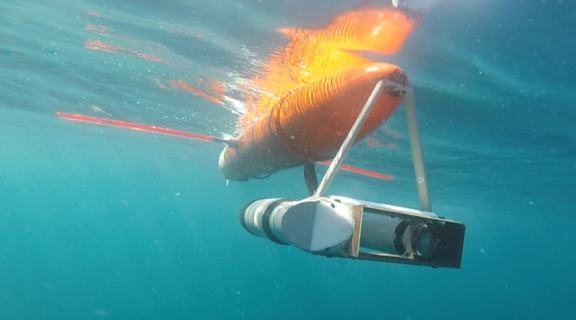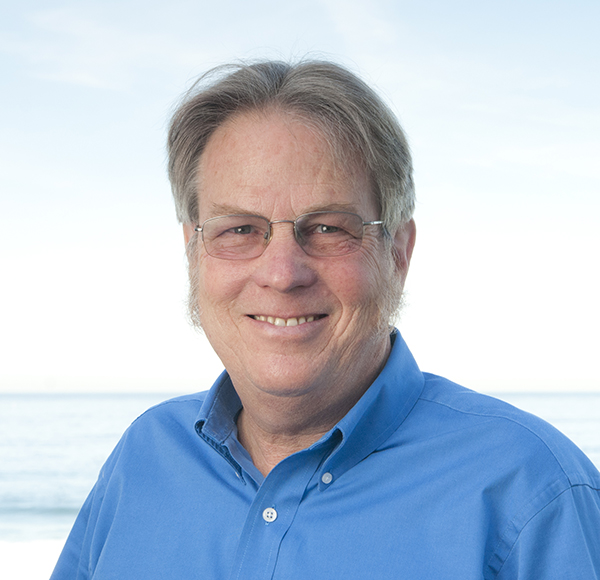
Rosenberg Institute Seminar Series - Mark D. Ohman
Overview
Mark Ohman, Distinguished Professor of the Graduate Division, Scripps Institution of Oceanography
Inciting a new view: novel in-sights from in situ sensing with the autonomous Zooglider
Abstract: Conventional approaches to the analysis of zooplankton population dynamics and behavior remove organisms from their natural habitat, often introducing artifacts and biases. We adapted an alternative, non-invasive approach with the development of the autonomous underwater Zooglider. Zooglider incorporates 3 primary sensing capabilities in addition to standard sensors: Zoocam, a shadowgraph imaging system with telecentric lens; Zonar, a dual frequency (200/1000 kHz) echosounder; and Acousonde, a broadband hydrophone. By sensing zooplankton and marine snow in situ with minimal disturbance, it has revealed delicate feeding structures that markedly increase encounter volumes with prey; giant diatoms that are largely inaccessible to zooplankton grazing; vertical Thin Layers of zooplankton that are likely hot spots for prey-predator interactions; abrupt community transitions across oceanic fronts; diel periodicity in some fish vocalizations; and other phenomena. This presentation will illustrate some of new perspectives being uncovered by this autonomous approach to in situ plankton sensing and measurement.
Bio: Mark Ohman is Distinguished Professor of the Graduate Division at the Scripps Institution of Oceanography/UC San Diego. He is a zooplankton ecologist who incorporates measurement approaches ranging from autonomous instrumentation to multi-decadal ocean time series to addresses processes spanning small-scale prey-predator interactions to climate-scale impacts on pelagic ecosystems. He is the founder of the NSF California Current Ecosystem LTER site and served for 30 years as Curator of the Scripps Pelagic Invertebrate Collection. He earned a PhD in Oceanography at UW Seattle, an MA in Biology at CSU San Francisco, and a BA in Biology at UC Santa Cruz.
